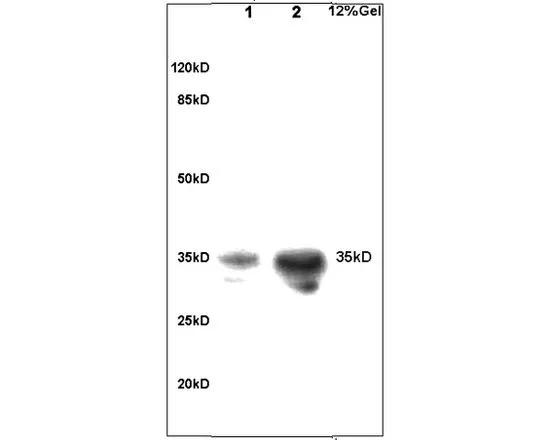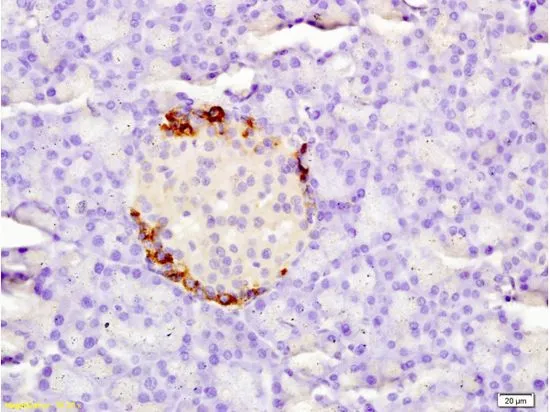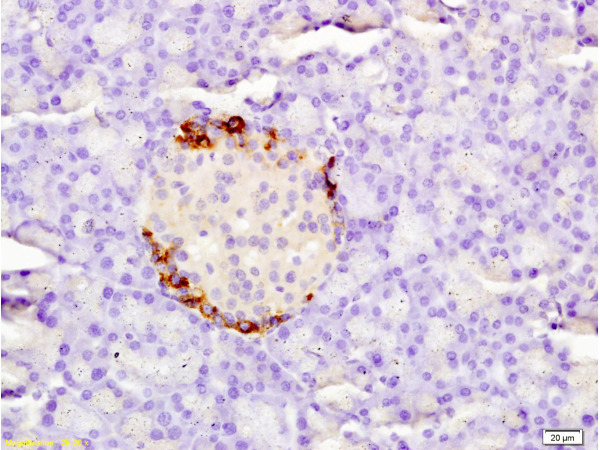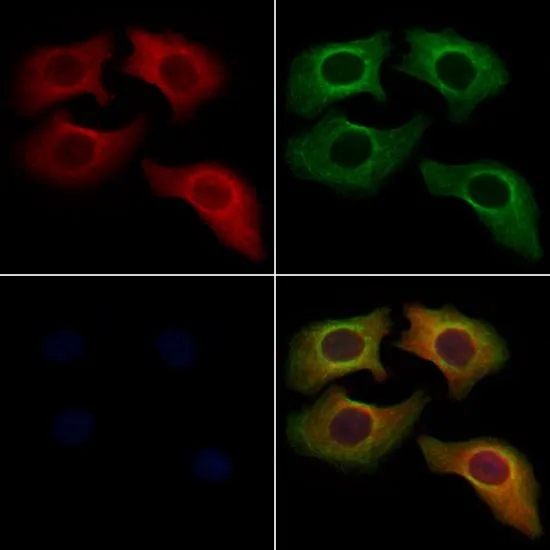
WB analysis of various sample lysates using GTX04324 Coagulation factor III/Tissue Factor antibody. Lane 1: rat brain Lane 2: rat liver Dilution : 1:200
Coagulation factor III/Tissue Factor antibody
GTX04324
ApplicationsFlow Cytometry, ImmunoFluorescence, Western Blot, ImmunoCytoChemistry, ImmunoHistoChemistry, ImmunoHistoChemistry Frozen, ImmunoHistoChemistry Paraffin
Product group Antibodies
ReactivityHuman, Mouse, Porcine, Rat
TargetF3
Overview
- SupplierGeneTex
- Product NameCoagulation factor III/Tissue Factor antibody
- Delivery Days Customer9
- Application Supplier NoteWB: 1:300-1:5000. ICC/IF: 1:50-1:200. IHC-P: 1:200-1:400. IHC-Fr: 1:50-1:200. FCM: 1:20-1:100. *Optimal dilutions/concentrations should be determined by the researcher.Not tested in other applications.
- ApplicationsFlow Cytometry, ImmunoFluorescence, Western Blot, ImmunoCytoChemistry, ImmunoHistoChemistry, ImmunoHistoChemistry Frozen, ImmunoHistoChemistry Paraffin
- CertificationResearch Use Only
- ClonalityPolyclonal
- Concentration1 mg/ml
- ConjugateUnconjugated
- Gene ID2152
- Target nameF3
- Target descriptioncoagulation factor III, tissue factor
- Target synonymsCD142, TF, TFA, tissue factor, coagulation factor III (thromboplastin, tissue factor)
- HostRabbit
- IsotypeIgG
- Protein IDP13726
- Protein NameTissue factor
- Scientific DescriptionThis gene encodes coagulation factor III which is a cell surface glycoprotein. This factor enables cells to initiate the blood coagulation cascades, and it functions as the high-affinity receptor for the coagulation factor VII. The resulting complex provides a catalytic event that is responsible for initiation of the coagulation protease cascades by specific limited proteolysis. Unlike the other cofactors of these protease cascades, which circulate as nonfunctional precursors, this factor is a potent initiator that is fully functional when expressed on cell surfaces. There are 3 distinct domains of this factor: extracellular, transmembrane, and cytoplasmic. This protein is the only one in the coagulation pathway for which a congenital deficiency has not been described. Alternate splicing results in multiple transcript variants.[provided by RefSeq, May 2010]
- ReactivityHuman, Mouse, Porcine, Rat
- Storage Instruction-20°C or -80°C,2°C to 8°C
- UNSPSC41116161








![Various whole cell extracts (30 μg) were separated by 10% SDS-PAGE, and the membrane was blotted with Coagulation factor III/Tissue Factor antibody [N1C3] (GTX100808) diluted at 1:1000. The HRP-conjugated anti-rabbit IgG antibody (GTX213110-01) was used to detect the primary antibody.](https://www.genetex.com/upload/website/prouct_img/normal/GTX100808/GTX100808_43005_20171124_WB_w_23060100_590.webp)
